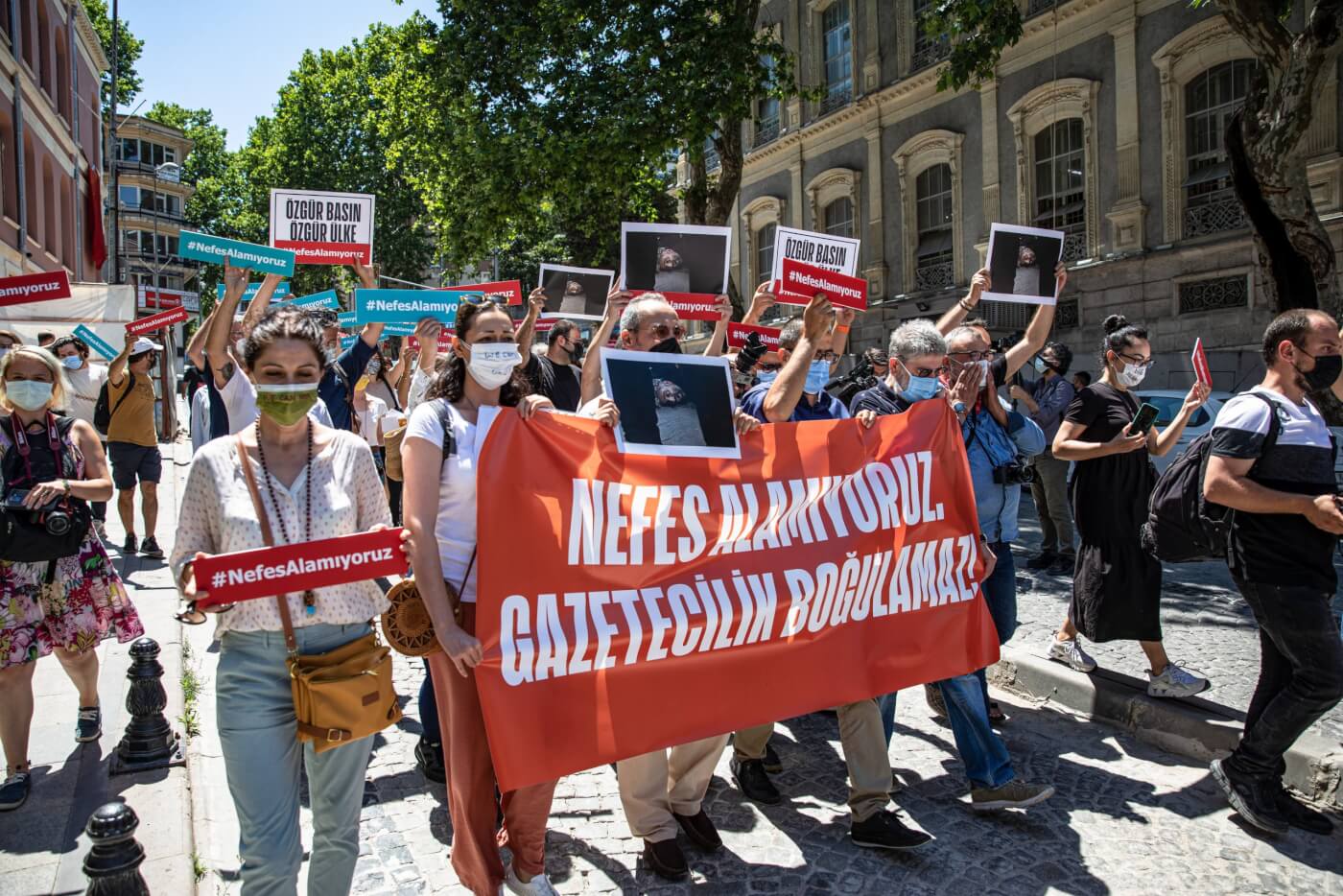A report, recently published by Turkey’s Progressive Journalists Association (ÇGD), has linked a recent escalation in physical attacks against the press to increasingly oppressive policy decisions by President Erdogan’s ruling Justice and Development Party (AKP).
The report underlines the troubling increase in the number of physical assaults on journalists threatened by Turkey’s far-right Nationalist Movement Party (MHP), stating that “Offenders of such assaults against journalists happened to be police forces in May and June”.
The case of one journalist, Bülent Kılıç, is highlighted explicitly in the report. Kılıç, a photojournalist for Agence France-Presse, was covering the Istanbul Pride march when a group of police officers pinned him to the ground, kneeling on his neck and back. “They tried to kill me, they tried to prevent me from breathing,” Kılıç said in a tweet.
“There is still no investigation into the persons who in a way attempted to kill Bülent Kılıç while having the status of ‘state security force’ and they are still on duty. It is the clear indicator of the underlying mentality of this crime,” the report states. “It is not only our colleague that they [attempted to] suffocate, but the people’s freedom of information. If the purpose of this wave of violence is to grind media workers down and thereby keep them from doing their job, we once again say in a strong voice that it isn’t possible to achieve this goal.”
Another journalist mentioned in the report is Mustafa Uslu; a correspondent for İhlas News Agency who was severely beaten while covering the demolition of a farm owned by Turkish MP Lütfü Türkkan. “Journalist Mustafa Uslu was wounded in many parts of his body by the assault allegedly carried out by Lütfü Türkkan’s bodyguards,” the Association said.
“This incident has once more shown that hostility towards journalists has been becoming more and more widespread in Turkey.”
In April of this year, a notice, circulated by Turkey’s police headquarters, instructed officers to prevent people from recording security forces while they are “executing their duties”. The decision has been widely condemned for making it far more difficult to identify rights transgressions where police are deployed, therefore allowing officers to act with impunity.
The Association also identified 70 members of the press who appeared before the court in 24 separate cases; one having a lawsuit filed against them and two receiving prison sentences. Additionally, the report states that 7 journalists and 6 media outlets were targeted and threatened in 9 separate incidents, with access to 7 news topics prohibited in 10 different media outlets.
The imposition of policy which facilitates more frequent attacks on journalists is a contravention of Turkey’s legal and moral obligations. The Turkish government must ensure that they implement their 2020 UPR commitment to allowing independent media to “operate freely without interference or censorship”.

